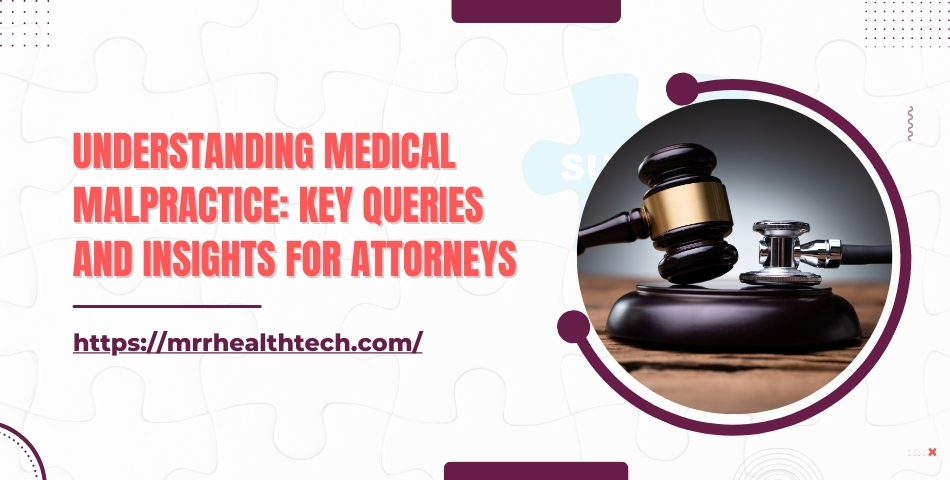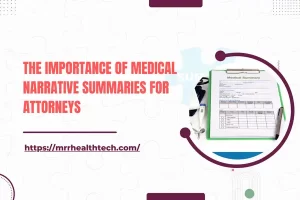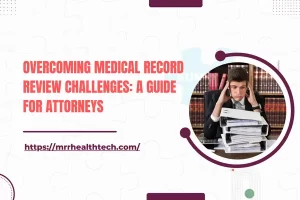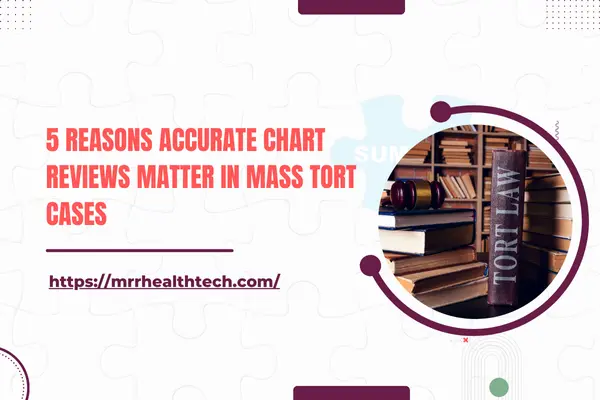
Introduction
Medical malpractice is a multifaceted area of law with potential areas of difficulties for lawyers practicing for clients across the United States. There has been a growing concern among the United States’ citizens about their rights as patients and the standards set for healthcare providers. The practicing lawyers have to seek answers to many questions which pertain to medical malpractice jurisdiction. This article is a step by step guide addressing some of those questions and concerns, as well as providing the odds of winning such a case and discussing how medical record review companies help lawyers win the cases they are handling.
What is Medical Malpractice?
Medical malpractice occurs when a healthcare professional fails to provide the standard of care, resulting in harm to a patient. This can encompass various forms of negligence, including misdiagnosis, surgical errors, medication mistakes, and failure to obtain informed consent. Understanding the nuances of medical malpractice is essential for attorneys who wish to effectively represent their clients.
Common Queries about Medical Malpractice
What constitutes medical malpractice?
- Evidence related to medical malpractice comprises four main elements: duty, breach, causation, and damages. The first step that lawyers must make is to demonstrate that the healthcare practitioner owed the patient a duty, breached that duty, caused harm, and consequently the patient endured losses.
How can I prove negligence in a medical malpractice case?
• Negligence can be proven through testimonies of medical experts with a doctor’s report substantiating the records and negligence of the healthcare provider.
What are the typical damages awarded in medical malpractice cases?
- Damages include medical bills and lost earnings, loss of enjoyment, emotional suffering, and sometimes loss of earnings.
What is the statute of limitations for filing a medical malpractice claim?
- The statute of limitations, however, varies by state from one to three years from both the date of the incident and the date of the discovery of the injury.
What role do medical record review companies play?
- Medical records review companies work along with lawyers in the review of medical records to determine the material facts, date the events and prove claims on negligence. This helps in the development of a strong case.
Chances of Winning a Medical Malpractice Case
It would be reasonable to assume that wining a medical malpractice case is difficult because there is strong evidence that is provided to prove negligence. Nevertheless, even in these circumstances, it is important to understand the factors that impact success so that lawyers are able in fighting for their clients.
Factors Influencing the Chances of Winning
Strength of Evidence
• There is a need for strong and clear evidence. This includes extensive health records, reports from expert witnesses, and materials specifying the guarantee.
Expert Testimony
• The case receives a substantial boost by the presence of expert medical witnesses who can explain and substantiate the standard of care and how it was breached.
Jurisdiction
• Legal standards regarding medical malpractice are not uniform in all States making the chances of winning vary. Legal rules concerning ‘caps on damages’ limitations and ‘pre-litigation’ requirements are present in some states making viability of the case very difficult.
Public Image
• Therapeutic trust and the rules of the law are matters of public concern and may [deterministically] affect the opinion of jurors. Lawyers have to be able to counterbalance the stand of the jurors who may have such tendencies and convincingly present their case.
Settlement and Trial
• There are instances where it is not necessary to wait for a trial because most cases of medical malpractice should settle somewhere before a trial. The attorneys must make up their minds as to whether the benefits of a settlement are perceived outweigh the risks involved in going to trial.
The Role of Medical Record Review Companies
Medical record review companies play a vital role in assisting attorneys with medical malpractice cases. They provide a thorough analysis of medical records, helping attorneys identify critical information that supports their claims.
How Medical Record Review Works
Initial Consultation
• The specified medical record review company focus on the malpractice case since the lawyers explain brief about its allegations.
Record Retrieval
• The review company is to retrieve all relevant medical records while ensuring not to miss any pertinent detail.
Analysis and Reporting
• Members of the review company witness the records as medical practitioners understand the documents and execute their verdict by reporting discrepancies along the standard of care.
Expert Testimony Support
• The majority of medical record review firms are similarly able to provide professional witnesses that testify based on the findings, making the case better.
Benefits of Using Medical Record Review Services
- Time Efficiency: Attorneys save valuable time by outsourcing the labor-intensive process of record review.
- Expert Insights: Access to medical professionals who can interpret complex medical terminology and procedures.
- Enhanced Case Preparation: Comprehensive reports that can be used to build a compelling narrative for the case.
Case Studies
Case Study 1: Surgical Error in a Routine Procedure
Overview of the Case
A patient underwent a routine appendectomy, during which the surgeon inadvertently perforated the patient’s intestines, leading to severe complications.
Challenges
The primary challenge was proving that the surgeon’s actions constituted negligence, as the procedure was generally considered low-risk.
Solutions
The attorney engaged a medical record review company to analyze the surgical notes and obtain expert testimony. The review revealed inconsistencies in the surgeon’s adherence to standard procedures.
Case Study 2: Misdiagnosis of a Serious Condition
Overview of the Case
A patient presented with symptoms indicative of a serious illness but was misdiagnosed with a less severe condition, resulting in a delay in appropriate treatment.
Challenges
The challenge was to demonstrate that the misdiagnosis directly led to the patient’s worsening condition and subsequent complications.
Solutions
The attorney utilized a medical record review company to compile a timeline of the patient’s visits and treatments. Expert witnesses were brought in to explain how the standard of care was not met in diagnosing the patient.
Conclusion
Resolving and managing medical malpractice cases are not the easiest task. It calls for knowledge of the law, knowledge of the medical field and knowledge of the resources that lawyers have at their disposal. There are practical ways in which lawyers can strengthen their case preparation, tackle frequently asked questions and most importantly present the most compelling case in court. It is worth noting though that the medical malpractice arena is evolving, and lawyers who want to fight for their clients would have to be up to date and have the right tools for the job.













